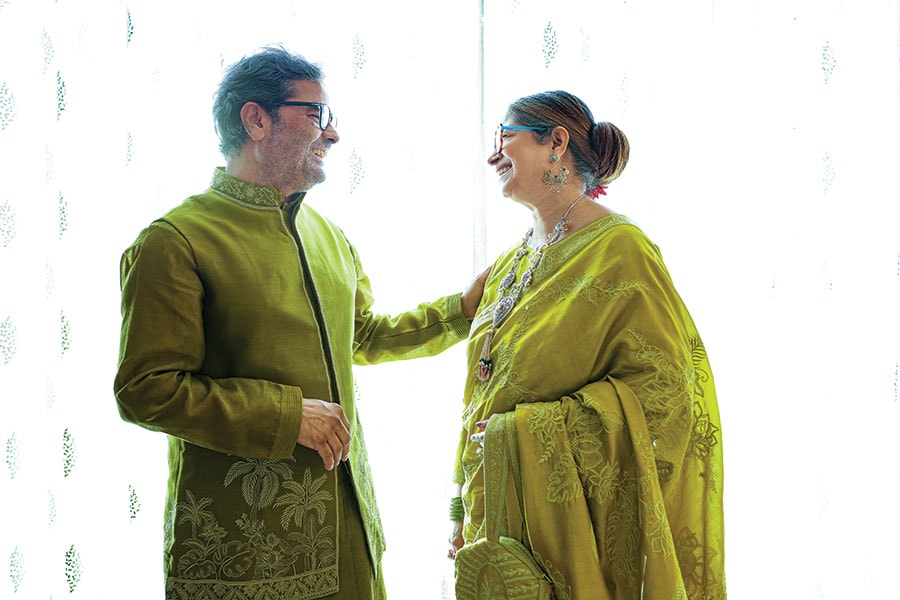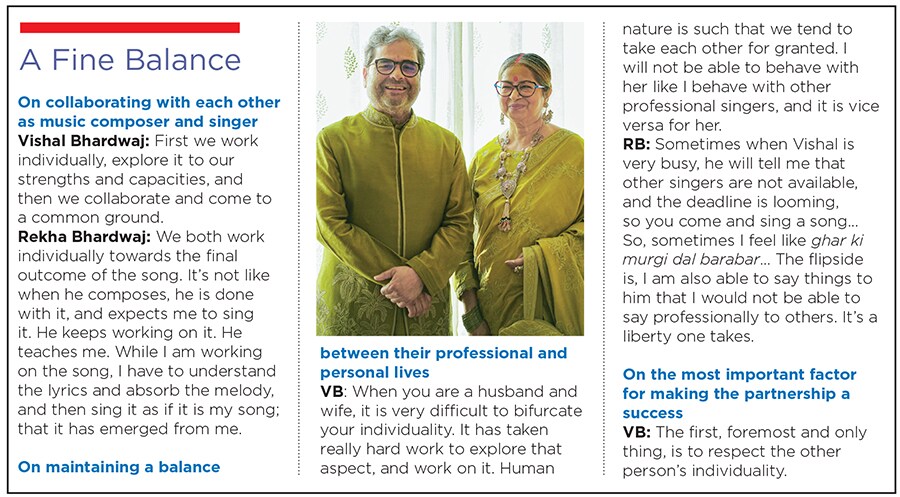
In perfect sync: The melody of Rekha and Vishal Bhardwaj
It is music that brought the duo together in college in Delhi and it is music that continues to be an intricate binding part of their lives. While each has carved their own niche, they have together produced some of the most memorable Hindi film music of the past two decades
 It was music that brought Vishal and Rekha Bhardwaj together in college in Delhi
It was music that brought Vishal and Rekha Bhardwaj together in college in Delhi
When Rekha and Vishal Bharadwaj speak about their work, it is an effortless ebb and flow of ideas and words, their sentences complementing the thoughts of the other, their pauses like unspoken cues for the other to speak. Whether it is a recollection of their early days in music, their visits to jazz clubs in London, or their process of making music together, they barely miss a beat in the easy and calm conversation.
As Rekha puts it: “When Vishal is speaking, my mind works, and when I am speaking, Vishal’s mind works.”
It is music that brought the duo together while in college in Delhi, and it is music that continues to be an intricate and binding part of their lives. (Vishal has previously said that film direction was not his dream, and that it was only out of necessity—to break out of the fixed “song situations” of films of the 1990s—that he became a director.) Over the years, Vishal has learnt how to play the piano—he plays every morning after his daily game of tennis—and has learnt how to write poetry with proper meter, while Rekha likes to play with clay and splash colours—it is like meditation—and do home composting. “All that is music to me,” she adds.
What started out as preparing for a college annual function in 1984 has grown and evolved into one of the most successful musical pairings in the Hindi film industry and beyond, with numerous chartbusters and award winners over more than two decades. Vishal has won eight National Awards, four of which are for his music compositions, while Rekha has won one National Award and three Filmfare Awards, among others.
Starting with ‘Ek Woh Din Bhi’ in the Kamal Haasan-directed Chachi 420 in 1997, right up to the Vishal-directed espionage-thriller Khufiya that released this October—Satya (1998), Maqbool (2003), Omkara (2006), Kaminey (2009), Ishqiya (2010), Haider (2014), Talvar (2015) and Rangoon (2017) mark milestones in between—the couple has become synonymous with songs that linger on in our minds long after the films have faded.










